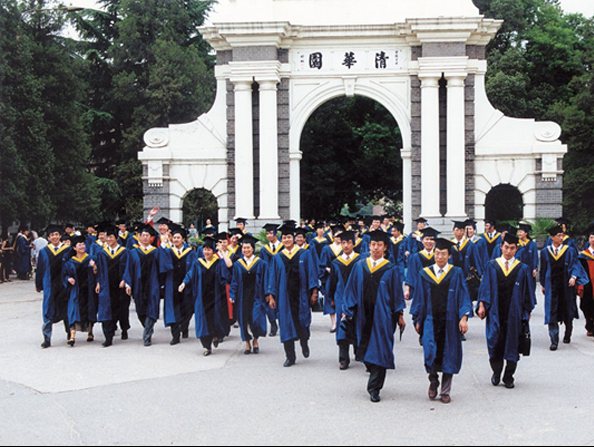


Tsinghua University
Chinese authorities on Thursday released a selected list of universities and colleges, which will participate in the country’s construction plan of world-class universities and first-class disciplines.
The plan, also known as the “Double-First Class” initiative, aims to ultimately build a number of world class universities and disciplines by the end of 2050, in an effort to make China an international higher education power. The project will run on a five-year cycle, while around 100 disciplines will be supported, including those that are related to national security and vital interests, as well as emerging and interdisciplinary subjects.
According to the list jointly released by the Ministry of Education (MOE), the Ministry of Finance (MOF), and the National Development and Reform Commission (NDRC), 42 universities and colleges will be developed into world-class educational institutions, while 95 universities will focus on building their preponderant disciplines into first-rate ones.

Peking Univesity
“The list is a selection of universities and disciplines that are expected to be developed into world-class ones. It doesn’t mean that those universities and disciplines have already been recognized as first-class ones, and the result of ‘Double-First Class’ still remains to be seen,” according to an announcement released by the three departments.
China has attached great importance to its higher education construction in the past few decades. The country has previously launched two similar projects, Project 211 and Project 985, which aim to strengthen over 100 institutions of higher education and key disciplines as a national priority for the 21st century and to establish world-class universities in the 21st century, respectively.
According to Chinese authorities, the new endeavor is not a replacement of the two previous projects, but a reshuffle of the countries’ ranking of prestigious universities. All the selected universities and disciplines have gone through scientific and impartial assessments, and will compete with each other in the coming years.
 Fire brigade in Shanghai holds group wedding
Fire brigade in Shanghai holds group wedding Tourists enjoy ice sculptures in Datan Town, north China
Tourists enjoy ice sculptures in Datan Town, north China Sunset scenery of Dayan Pagoda in Xi'an
Sunset scenery of Dayan Pagoda in Xi'an Tourists have fun at scenic spot in Nanlong Town, NW China
Tourists have fun at scenic spot in Nanlong Town, NW China Harbin attracts tourists by making best use of ice in winter
Harbin attracts tourists by making best use of ice in winter In pics: FIS Alpine Ski Women's World Cup Slalom
In pics: FIS Alpine Ski Women's World Cup Slalom Black-necked cranes rest at reservoir in Lhunzhub County, Lhasa
Black-necked cranes rest at reservoir in Lhunzhub County, Lhasa China's FAST telescope will be available to foreign scientists in April
China's FAST telescope will be available to foreign scientists in April "She power" plays indispensable role in poverty alleviation
"She power" plays indispensable role in poverty alleviation Top 10 world news events of People's Daily in 2020
Top 10 world news events of People's Daily in 2020 Top 10 China news events of People's Daily in 2020
Top 10 China news events of People's Daily in 2020 Top 10 media buzzwords of 2020
Top 10 media buzzwords of 2020 Year-ender:10 major tourism stories of 2020
Year-ender:10 major tourism stories of 2020 No interference in Venezuelan issues
No interference in Venezuelan issues
 Biz prepares for trade spat
Biz prepares for trade spat
 Broadcasting Continent
Broadcasting Continent Australia wins Chinese CEOs as US loses
Australia wins Chinese CEOs as US loses